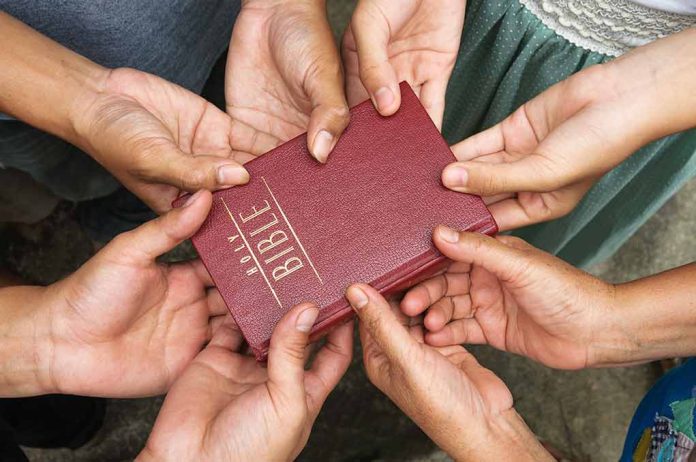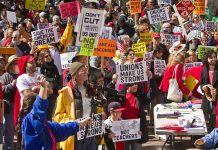
The impact of Donald Trump on Catholic voters reveals a significant shift in political dynamics, with religious values playing an increasingly pivotal role in U.S. elections.
At a Glance
- Trump gained support among Catholic voters in the 2024 election, surpassing his 2020 performance.
- White Catholics showed strong backing for Trump, while Latino Catholics leaned towards Harris.
- Social issues like abortion and immigration shaped Catholic voter preferences.
- Trump’s influence highlights the role of religious values in current political trends.
Shift in Catholic Voter Support
In the 2024 election, Donald Trump increased his support among Catholic voters compared to 2020. With 54% supporting Trump and 44% backing Harris, this marked a notable shift, particularly in states like North Carolina, Florida, and Texas. A racial divide was evident: six in ten white Catholics supported Trump, while Latino Catholics largely backed Harris.
Trump’s backing from white evangelical Christians remained strong, with about 80% supporting him. Trump’s appeal resonated with Catholics focused on religious freedom and anti-abortion policies that align with their core values.
Catholic Voter Concerns
Despite Trump’s gains, Catholic voters were divided on social issues. Some opposed Harris for her abortion stance, while others rejected Trump over immigration policies. Rev. Sam Sawyer, editor-in-chief of the Jesuit news magazine America, emphasized the need for justice, criticizing Trump’s mass deportation plans and advocating for solidarity with immigrant communities.
“Work for justice will certainly be necessary, Mr. Trump campaigned on the promise of mass deportations, which would tear families apart…,” said Sawyer.
Kristan Hawkins, president of Students for Life of America, supported Trump despite his stance on state-by-state abortion laws, highlighting a practical electoral approach among many Catholics.
Broader Religious Landscape
Trump’s impact on religious voters extended beyond Catholics. He maintained strong evangelical support, while Harris found backing from Black Protestants, Jewish, Muslim, and nonreligious communities. Trump’s support among Jewish voters stayed consistent with about one-third backing him.
Trump’s policies and appointments have been seen as supportive of religious freedoms, which earned approval from religious leaders like Archbishop Wenski. The extent of Trump’s influence remains a key factor in understanding the current and future political landscape shaped by religious alignments.














